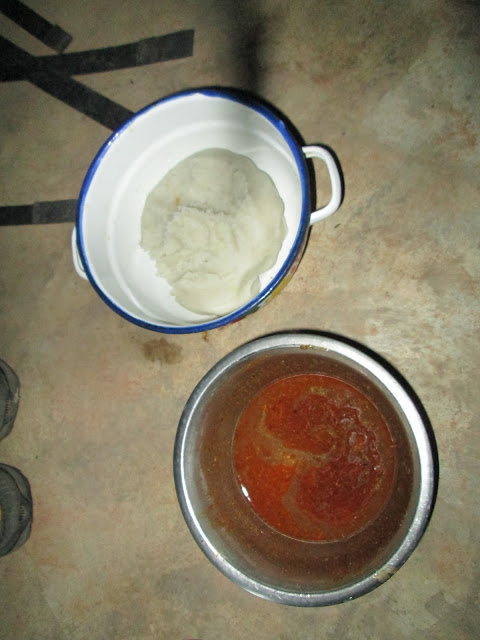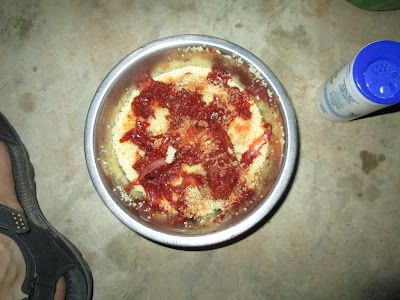An
important part of the greeting process in nearly every language and culture in
Burkina Faso is some form of the question “How are things going at your place?” or “Comment ça va chez vous?” Thanks for asking! To tell you the truth, things are going swell
at chez moi.
As far as my house is concerned, I feel like the winner of an unofficial site selection lottery that took place without the knowledge of Peace Corps Burkina Faso trainees. After living in a one room, one window house for 2 months, I have moved to a ridiculous five room mansion: bigger than most of the apartments that my friends are now sharing with 4-6 people. It’s definitely bigger than any property I will own until I have a decent job in the US (or elsewhere). It’s a spacious five room / half bathroom house with a porch, a spacious living room, a kitchen, a bedroom, a workout room, and an office. The kitchen appliances are brand new, the bed is a double, and the house is very well lit and ventilated.
Before
you get too jealous, keep in mind that I still don’t have running water or
electricity. My kitchen consists of a two higher tables for preparing food, a
trash can for storing water, and a gas stove that’s connected to the gas tank
below. No electricity means no fridge,
no blender, and, perhaps most importantly, no lights! The sun sets around 6pm, which leaves me with
the decision to cook dinner around 5pm or cook with my headlamp. My “office”
consists of a book shelf, a dresser, and a small desk. My “gym” is just an empty room with a mat on
the ground. The married volunteer couple
before me left a double “mattress,” which in Burkina Faso is just a slab of
foam on a rickety bamboo bed frame.
When considering the region of Burkina that I was placed in, it would not be a stretch to conclude that either my boss is rewarding me or she assumed that I would terminate my service if my single demand of “not the North” failed to be met. To put it lightly, the southwest of Burkina Faso is FANTISTICALLY AWESOMELY WAY BETTER than the northern part of country (but don’t tell the volunteers in the north that, because they’ll claim bragging rights and talk about how hard their volunteer service is). The climate is much more accommodating for a Californian, with temperatures dropping low enough for me to actually be cold at 6am (at least for now). With higher levels of rainfall, the southwest is cash crop country: mostly sugar and cotton. Powerful families in the villages profit greatly from the cash crop trade. There is typically a wide diversity of agriculture in the southwest, with a variety of tropical fruits and vegetables available seasonally. Most importantly, there are avocados available in my region. I love avocados.
There’s
a market every 5 days at a village that’s directly west of me. It’s only 1.5 km as the crow flies, but the
crow would fly over the ravine and the stream that divides the two
villages. There are a multitude of ways
to get across, some easier than others, as I have found during my first week at
site. But I’ll save that story for a future post.
In
other news, here’s the blog of a
fellow Peace Corps trainee (a USC Trojan) who ended her service after
one night with a Burkinabe host family. Now pretending to still be in
country........
http://www.lolitamunosespinoza.blogspot.com/
Filled with gross generalizations, pictures clearly taken from Google, and to top it off, an extremely condescending tone. In conclusion, graduates of UCLA are of a higher moral caliber than graduates of USC. Merry Christmas everyone!
http://www.lolitamunosespinoza.blogspot.com/
Filled with gross generalizations, pictures clearly taken from Google, and to top it off, an extremely condescending tone. In conclusion, graduates of UCLA are of a higher moral caliber than graduates of USC. Merry Christmas everyone!
 |
| Laundry, Burkina style |




















